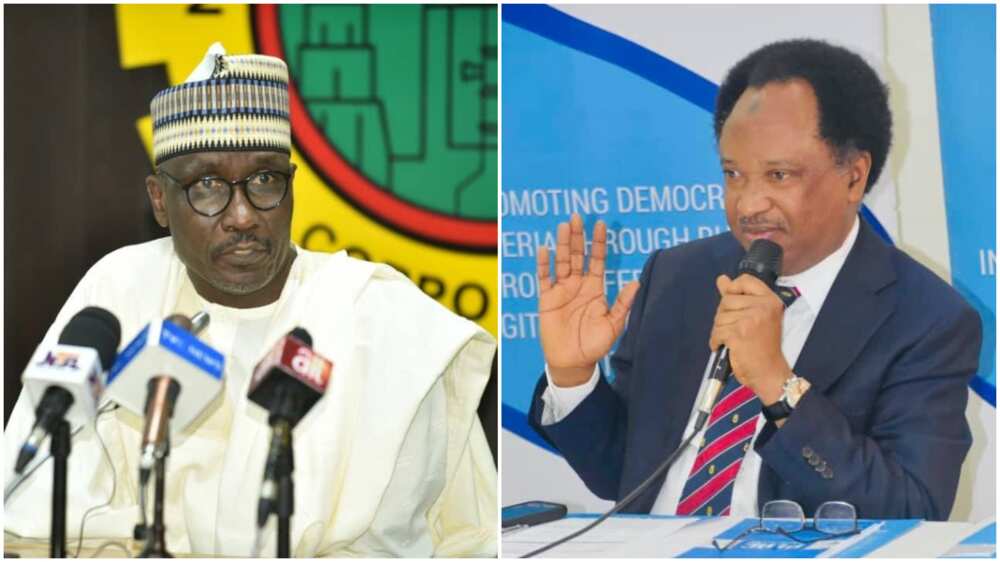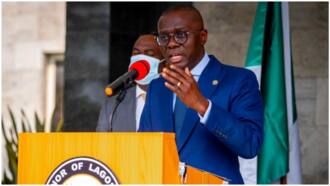4 Things that Will Happen If Petrol Price Becomes N340 Per Litre, Shehu Sani Reveals
Senator Shehu Sani, former federal lawmaker from Kaduna state, has spoken on what Nigerians will experience if the price of petrol becomes N340 per litre.
PAY ATTENTION: Click “See First” under the “Following” tab to see Legit.ng News on your Facebook News Feed!
Sani's comment follows a statement by the Group Managing Director and Chief Executive Officer of the Nigerian National Petroleum Company Limited (NNPC) that the price of petrol may range between N320 and N340 per litre after the removal of subsidy in 2022.

Source: Facebook
Taking to his Facebook page, the former senator listed what will happen if the product is being sold at such a high price.
He said:
- Salaries or wages will be worthless
- Landlords will increase the rent
- The schools will increase the tuition and parents must pay
- Food prices, transport, water and electricity bills will increase
PAY ATTENTION: Join Legit.ng Telegram channel! Never miss important updates!
Though the minister of finance, budget and national planning, Zainab Ahmed, said the subsidy will be replaced with a N5000-a-month transportation grant to the poorest Nigerians, Senator Sani said the government's plan cannot solve "all these problems".
Effect of subsidy removal may be catastrophic - May-May Ogoigbe
Also speaking on the FG's plan, May-May Ogoigbe, a marketing professional, warned that the removal of fuel subsidy in a time where there’s significant inflation in the economy might be retrogressive.
Her words:
"In my opinion, removal of fuel subsidy in a time where there’s significant inflation in the economy might be retrogressive.
"The required policy interventions must be in place, or else the effect of this may be catastrophic and may furthermore reduce the standard of living and negatively drive down income generation per household."
Life will become become more difficult for Nigerians - Omotade Mack
In her reaction, Omotade Mack, the Chief Executive Officer (CEO) of Ample Ace Ltd, an agricultural company that specializes in the trade of agro commodities, said the projected petrol price hike will not only affect the SMEs but also the entirety of the nation’s economy.
She also noted that the planned subsidy removal is coming at a time when the economy is trying to recover from the damaging impacts of the coronavirus pandemic.
“The cost of everything will go higher again and for the fact that people are not earning more, things will become more difficult,” Ms Omotade told Legit.ng.
As the owner of an agro business, she said the projected price hike will definitely lead to a sharp increase in the cost of transportation, noting that the N340 mentioned by the NNPC’s chief is about twice the current price (N165).
She noted that the development will also make things harder for SMEs owners as the amount of capital they will need for their operations will increase abruptly and rapidly.
Her words:
“People are not earning higher, life will become more difficult, things will become harder; food and transportation will become more expensive.”
Apart from the N5,000 transportation grant being proposed by the FG, Ms Omotade suggested an increase in the country’s minimum wage (currently at N30,000) to cushion the burden of the subsidy removal.
World Bank advises FG to remove petrol subsidy
Meanwhile, Legit.ng notes that the World Bank has also advised the Nigerian government to remove the petrol subsidy, arguing that it does not benefit the poorest Nigerians.
The Bank, however, advised the government to come up with programmes to protect the poor from the burden of the subsidy removal
It also advised the government to redirect the savings from petrol subsidy to finance primary health, basic education, and rural connectivity projects.
Governors back subsidy removal, says El-Rufai
Meanwhile, Malam Nasir El-Rufai, the governor of Kaduna state, has said state governments are in support of the federal government's plan to exit fuel subsidy regime.
El-Rufai, a panelist who joined virtually, said that if the regime of fuel subsidy was not eliminated, 35 out of the 36 states of the federation may not be able to pay salaries in 2022.
He argued that kerosene which matters most to the masses had been regulated without any hitches, while diesel which was most important to transporters had also been regulated for a long time. Similarly, Marco Hernandez, World Bank Lead Economist for Nigeria said petrol subsidy is not only costly it also mainly benefits richer households.
Source: Legit.ng



